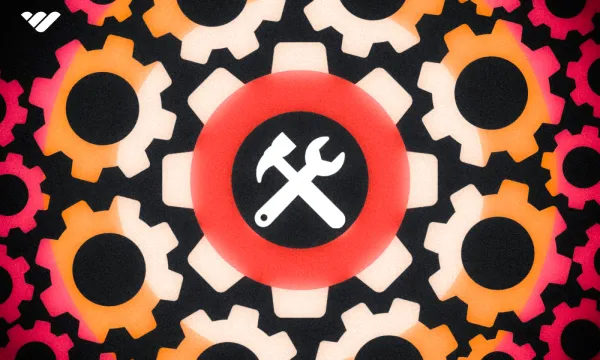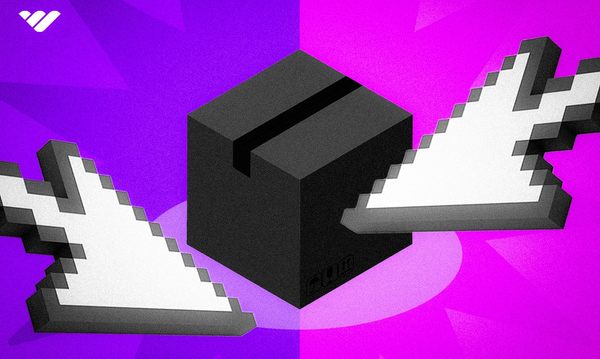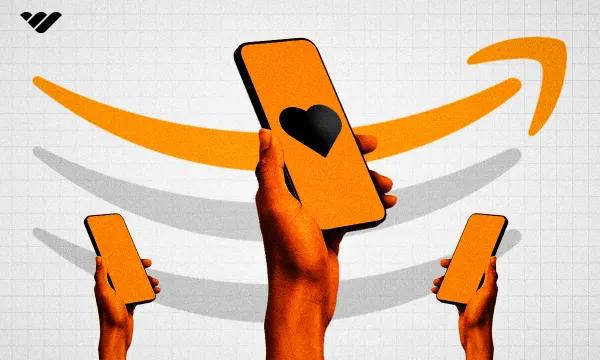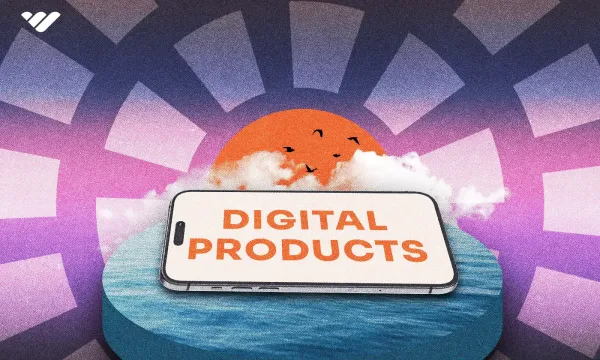Ecommerce is the opportunity of our generation. With the help of a few websites, some creativity, and minimal capital, you can spin up an online store in just a few hours. It’s incredible.
But, with the endless opportunity comes endless options. There are thousands, if not tens of thousands, of different softwares, agencies, and tools available. What do you go with? What does your business need? Do they actually do what they say they do?
In this guide we’ll cover what ecommerce is, how to pick the right software, and the best tools to help you grow your business today. We’ll also help you figure out if you really need a particular software, or if it’s just a “nice-to-have” for your business in the stage you’re in.
What is Ecommerce?
Ecommerce is simply buying and selling products online. You’re likely familiar with eBay, Amazon, and Etsy, which are some of the biggest physical-product ecommerce sites. These are marketplaces, versus a brand like Nike or Adidas. And there’s also places like Whop that offer digital products, like courses and paid communities, from creators and experts all across the world.
Physical-product ecommerce is massive. (Especially since COVID, online sales, food delivery, and grocery ordering have skyrocketed.)
And digital-product ecommerce is the next big thing, as consumers are hungry for instant access to years of experience from experts via courses and books, not expensive universities or big textbooks.
Ecommerce makes up 21% of global retail sales.
For more information on how big this industry is and how fast it’s going, check out our complete list of 120+ ecommerce statistics.
Picking the Right Ecommerce Tools
Businesses will require different tools for different stages of growth, revenue sizes, and organization structures. Here are the main filters to look through.
Purpose
What does the tool do? If you run a cookware brand, you probably don’t need a subscription software as your products are mostly one-time purchases. But if you have a supplement brand, then a subscription service that automatically charges customers and places orders each month will be one of the most crucial parts of your tech stack. It’s important to focus on the core functions of your business and find tools to help streamline those processes.
Necessity
While software seems inexpensive (think Netflix at $15 to $20 per month or Twitter Blue at $8 to $11 per month), the reality is that the yearly costs (Netflix at around $240 per year and Twitter Blue at upwards of $132 per year, totaling to almost $400 per year on entertainment) add up fast. Not to mention the increased prices with more usage, credit card fees, etc.
Only get the software that you absolutely need when you’re starting out. And be sure to watch out for upsells or adjacent products that may not be important for your brand.
Price-to-Value Ratio
In a similar vein, some tools do more to drive revenue than other tools. If you’re sending daily or weekly promotional emails, it’s a good idea to invest in a platform that makes this process easier and generates more sales.
If a tool is purely used for one piece of your business, like reviews or project management, it shouldn’t make up a large portion of your software expenses. Be willing to pay more for quality revenue-generating tools and be wise when it comes to operational tools.
The 20 Best Ecommerce Tools of 2024
These are the best tools to help your ecommerce business become more efficient and profitable.
1. 🏅Whop
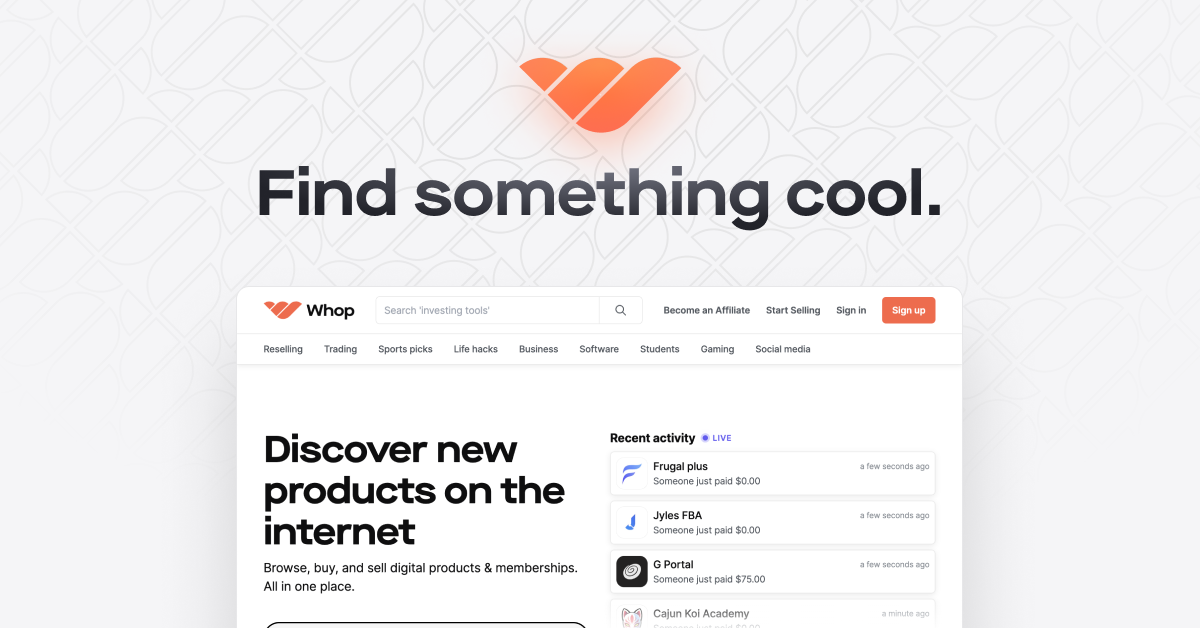
Best for selling digital products 🏆
Whop is the best place for entrepreneurs to sell digital products like courses, communities, and ebooks. It’s designed for people to quickly start selling their expertise and has top-tier support to help you earn the most money possible.
Additionally, it’s where the buyers are. Hundreds of millions of dollars in products have been purchased through the platform across a wide range of interests like sports, trading, fitness, SaaS, and more. If you’re looking for the quickest and most convenient way to start making money online, Whop is it.
Key Features 💻
- Easy-to-make storefronts
- Developer support
- Low transaction fees
- 24/7/365 support
Pricing 💰
- 0 costs to sign up, and just 3% in transaction fees
2. Shopify

Best for selling physical products 🏆
Shopify is one of the pioneers of the ecommerce industry and a key choice for brand operators. Sure, there are other store builders, but Shopify has the most support, accessible information, and biggest ecosystem of apps and plugins if you are selling physical products.
Key Features 💻
- Easy-to-use templates and drag-and-drop features
- Shopify app store with various categories
- Inventory management system
- Simple dashboards for easy decision making
Pricing 💰
- Starts at $29 per month
3. Sendlane
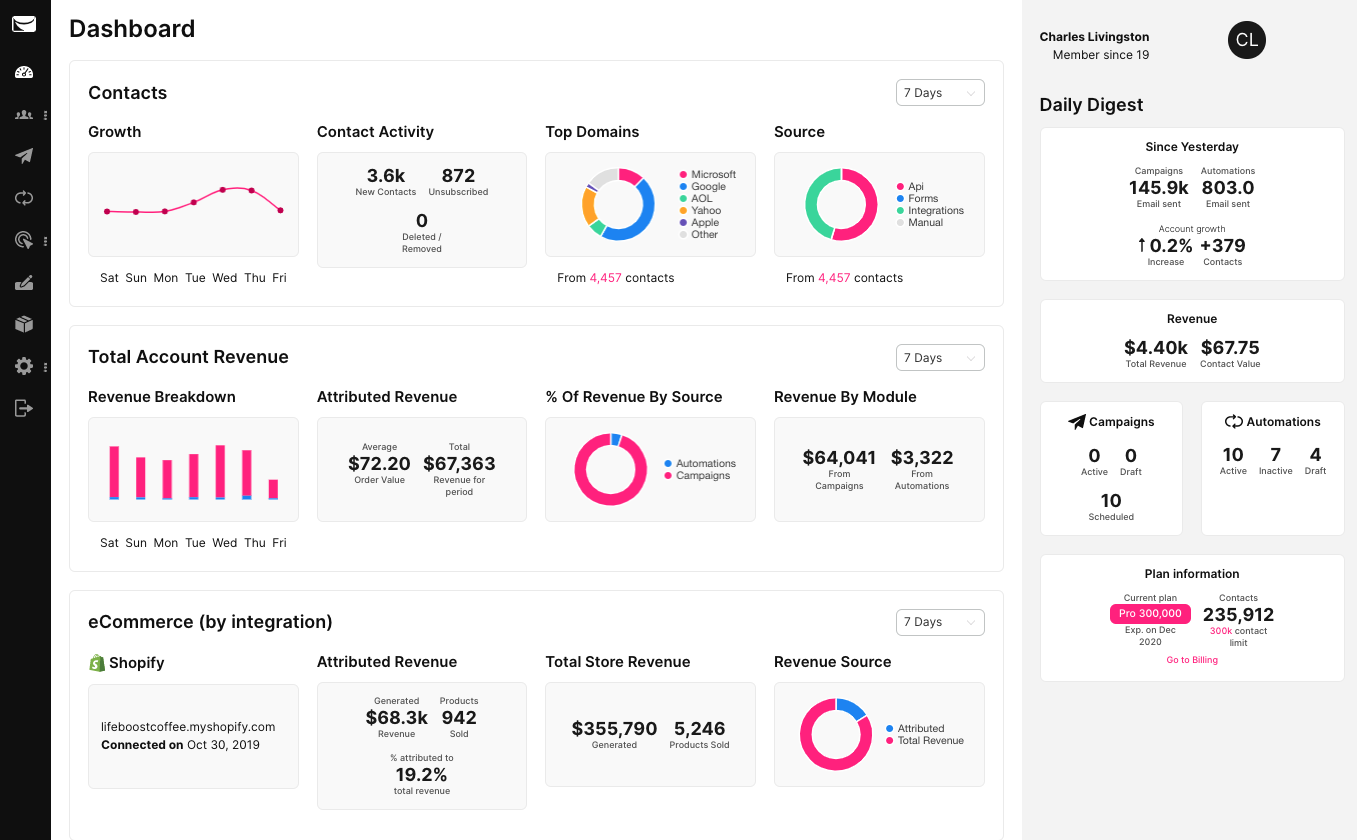
Best for email marketing for smaller brands 🏆
Sendlane is a unified SMS and email marketing solution great for brands that are just getting started. It also offers a review feature at no additional cost. Its team is always available for support and to diagnose any issues, which cannot be said about every tech company.
Key Features 💻
- Pre-built email templates for quick design
- Machine learning features for better open rates and deliverability
- 24/7/365 support
Pricing 💰
- Starts at $500 per month (500,000 emails)
4. Klaviyo

Best for email marketing for bigger brands 🏆
Klaviyo is another email marketing (primarily) platform that also has SMS, and a few other features. It’s a long-standing favorite among ecommerce brands (founded in 2012) and also has over 300+ integrations with services like Narvar, Facebook, etc.
Key Features 💻
- Built-in flows to increase sales
- Drag-and-drop templates
- Klaviyo AI for more precise segmentation
Pricing 💰
- Starts at $0 per month (500 emails)
5. Mailmodo
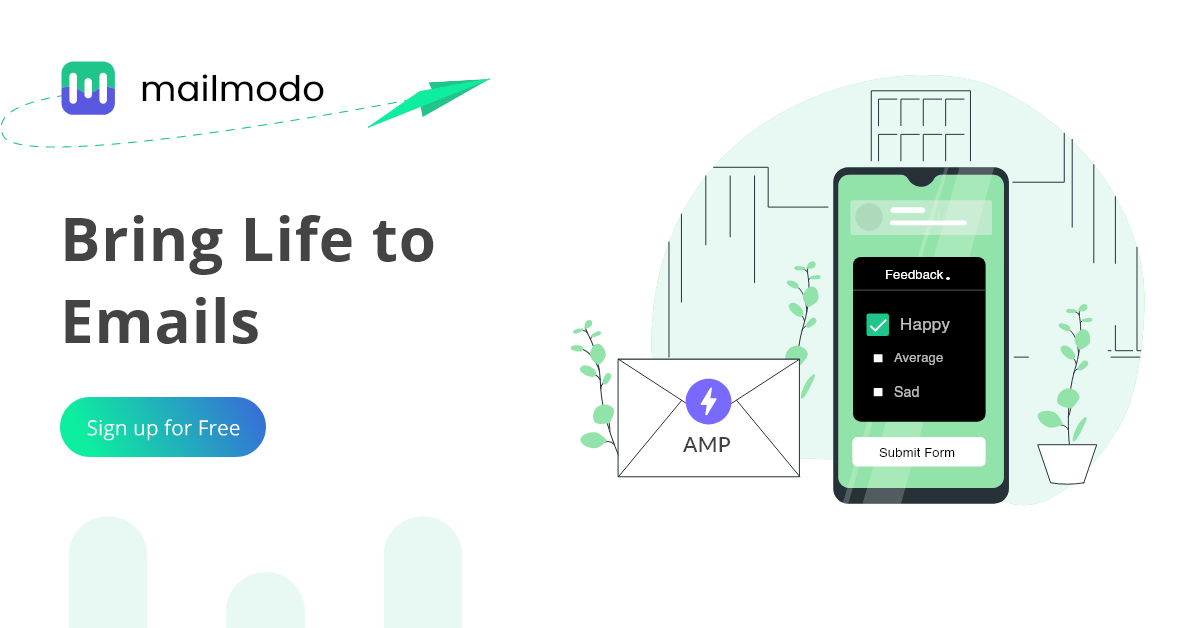
Best for email marketing for digital brands 🏆
Mailmodo is the most advanced platform for sending interactive emails. The platform lets you make beautiful emails with tailored segmentation that leads to 3x higher conversions and double the open rates. You can even send things like quizzes, review requests, and event registrations.
Key Features 💻
- Interactive quizzes and surveys
- High-converting customizable templates
- Targeted email sequences
Pricing 💰
- Starts at $39 per month (20,00 emails)
6. Northbeam
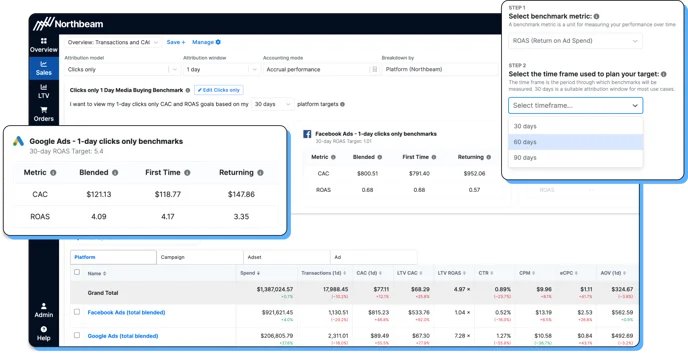
Best for marketing analysis 🏆
Northbeam is a platform that helps brands better understand their customer journey. It offers multi-touch attribution to see which platforms the buyer interacted with the most and media-mix modeling (MMM) to dial in your channel mix. Using a tool like Northbeam can help you decide where to spend more dollars and where to cut back.
Key Features 💻
- MMM allows you to forecast revenue and budget better
- MTA acts as a source of truth on attribution
- Ad creative analytics to help with refinement
Pricing 💰
- Starts at $1,000 per month
7. Triple Whale
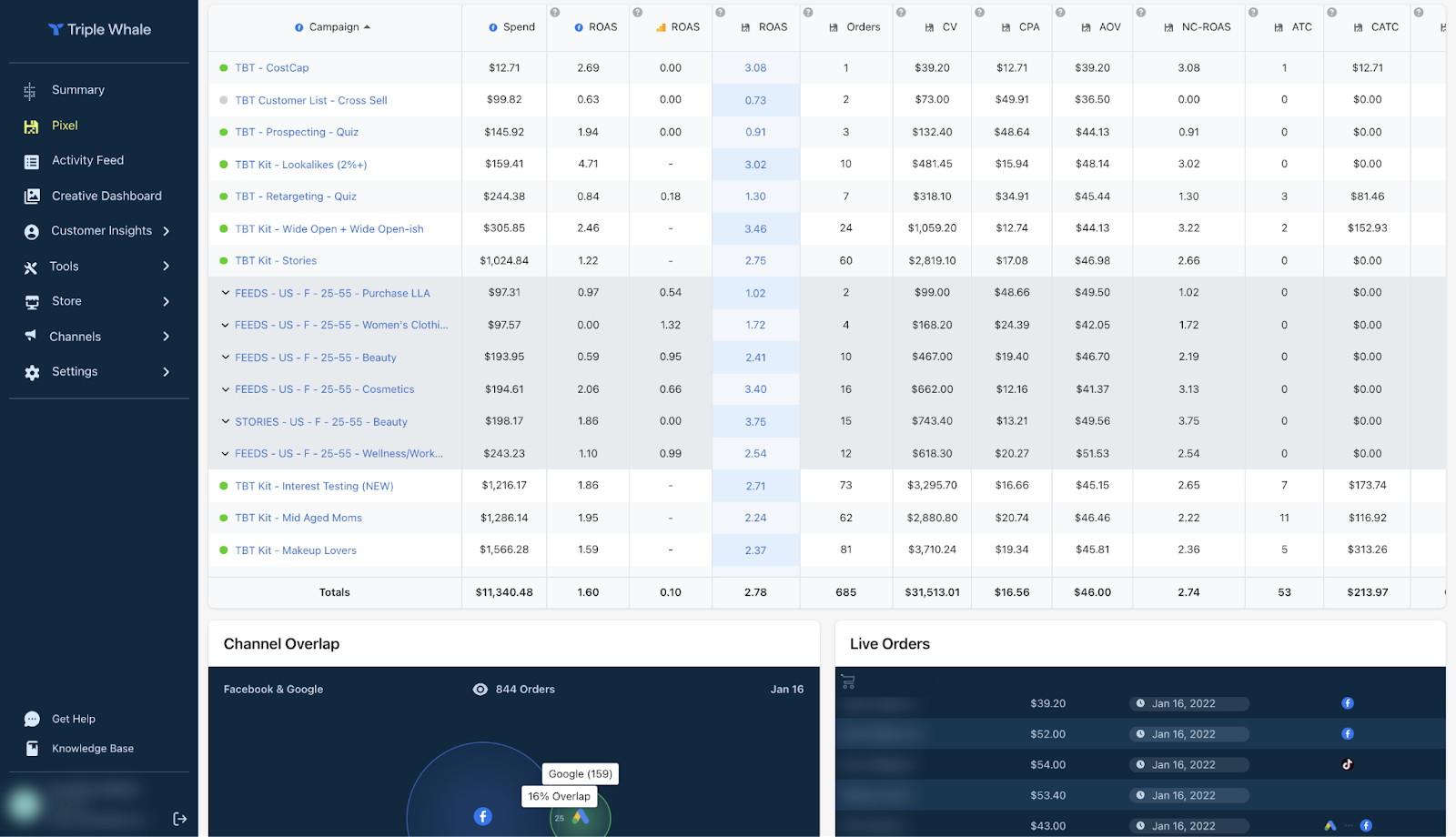
Best for data platform 🏆
Triple Whale is an analytics platform that puts all of your key business metrics into one, easy-to-understand dashboard. It supports data on ad campaigns, ad creatives, sales, and more.
Key Features 💻
- Data visualization across multiple platforms and channels
- Accompanying mobile app for mobile access
- Post-purchase surveys for more subjective customer data
Pricing 💰
- Starting at $0 per month
8. Replo
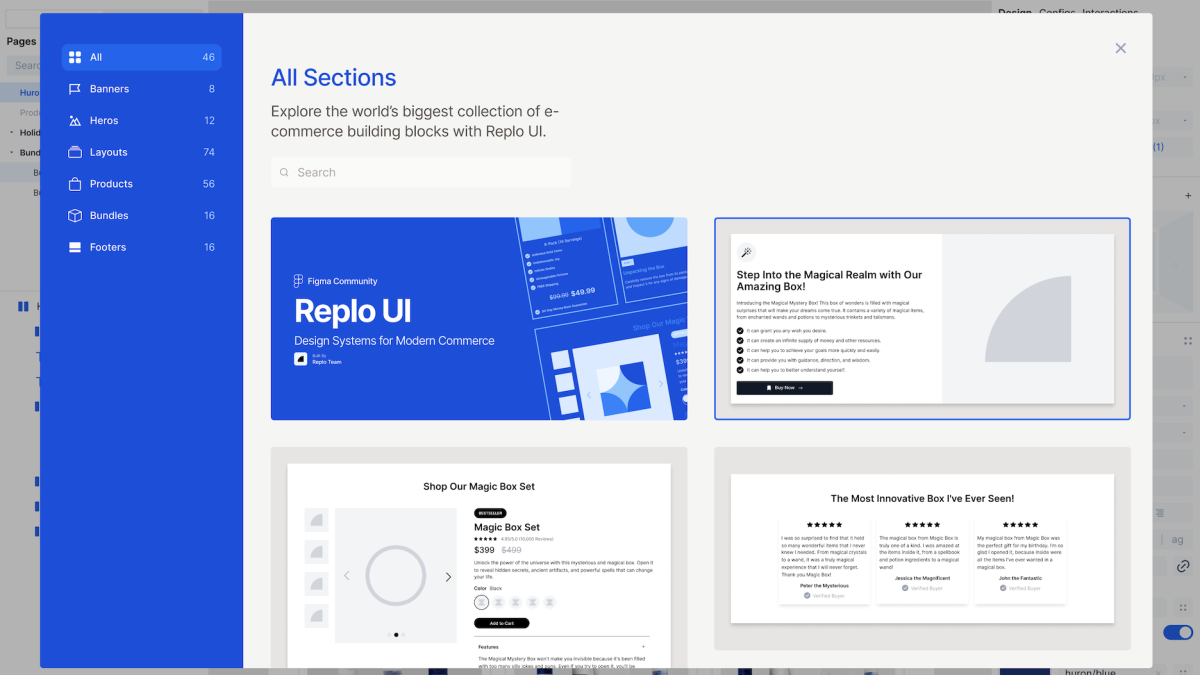
Best for landing page design 🏆
Replo is a dedicated Shopify landing page builder with little to no code. It’s used by many of the top ecommerce brands and integrates seamlessly with Figma, so anything you or your designers create there will translate seamlessly.
Key Features 💻
- Shopify integration for ease
- Quick page speed for more conversions
- AI copy and design features for faster page creation
Pricing 💰
- Starting at $99 per month
9. FERMÀT
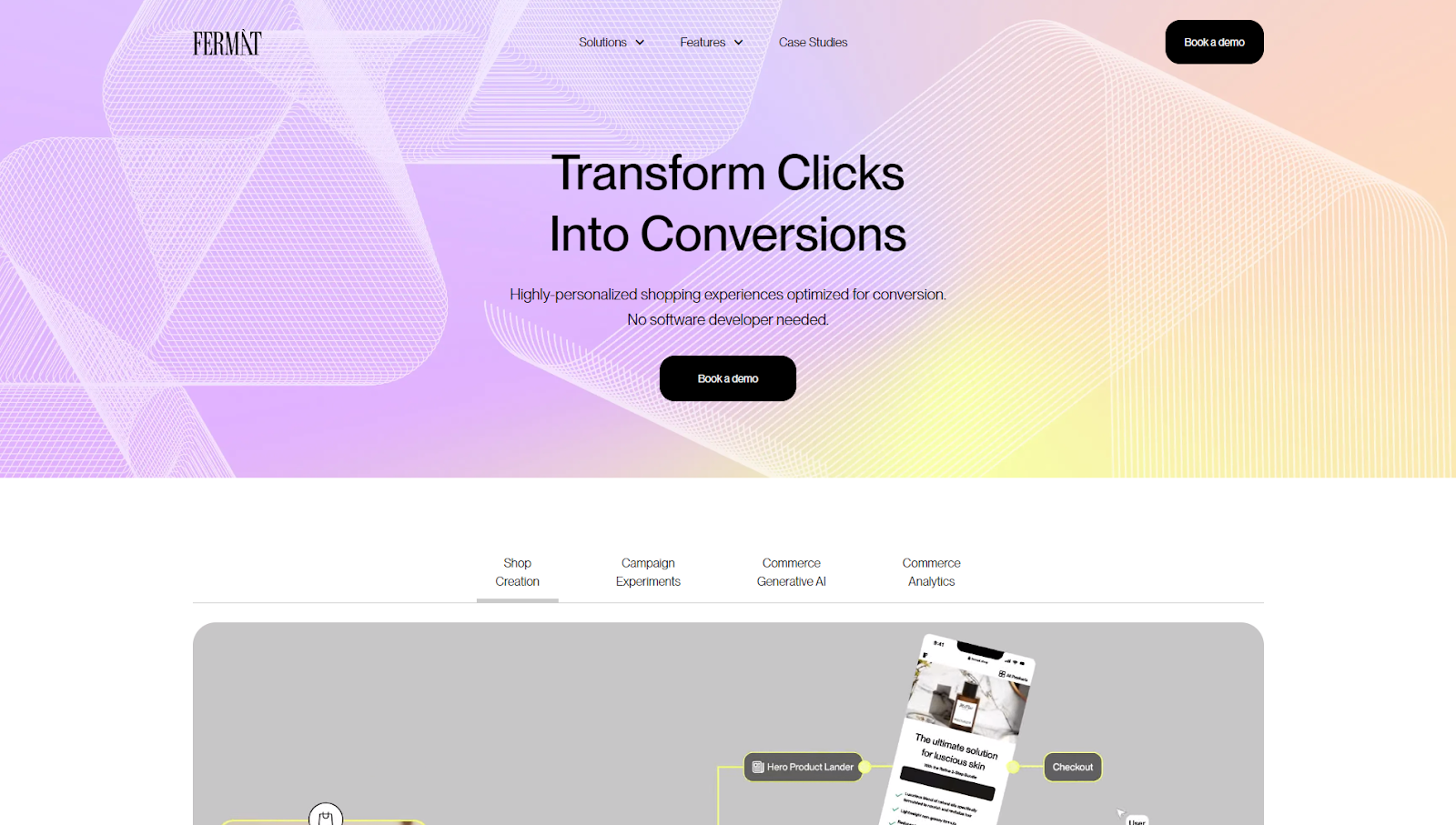
Best for personalized landing pages 🏆
FERMÀT helps you build shopping experiences that are made to convert from paid social ads. They offer dynamic, personalized landing pages to help convert customers in under five minutes.
Key Features 💻
- Personalized post-click landing pages
- Test offers for better conversion rates
- Upsell, bundling, and subscription checkout pages to increase profits
Pricing 💰
- Custom
10. Buffer
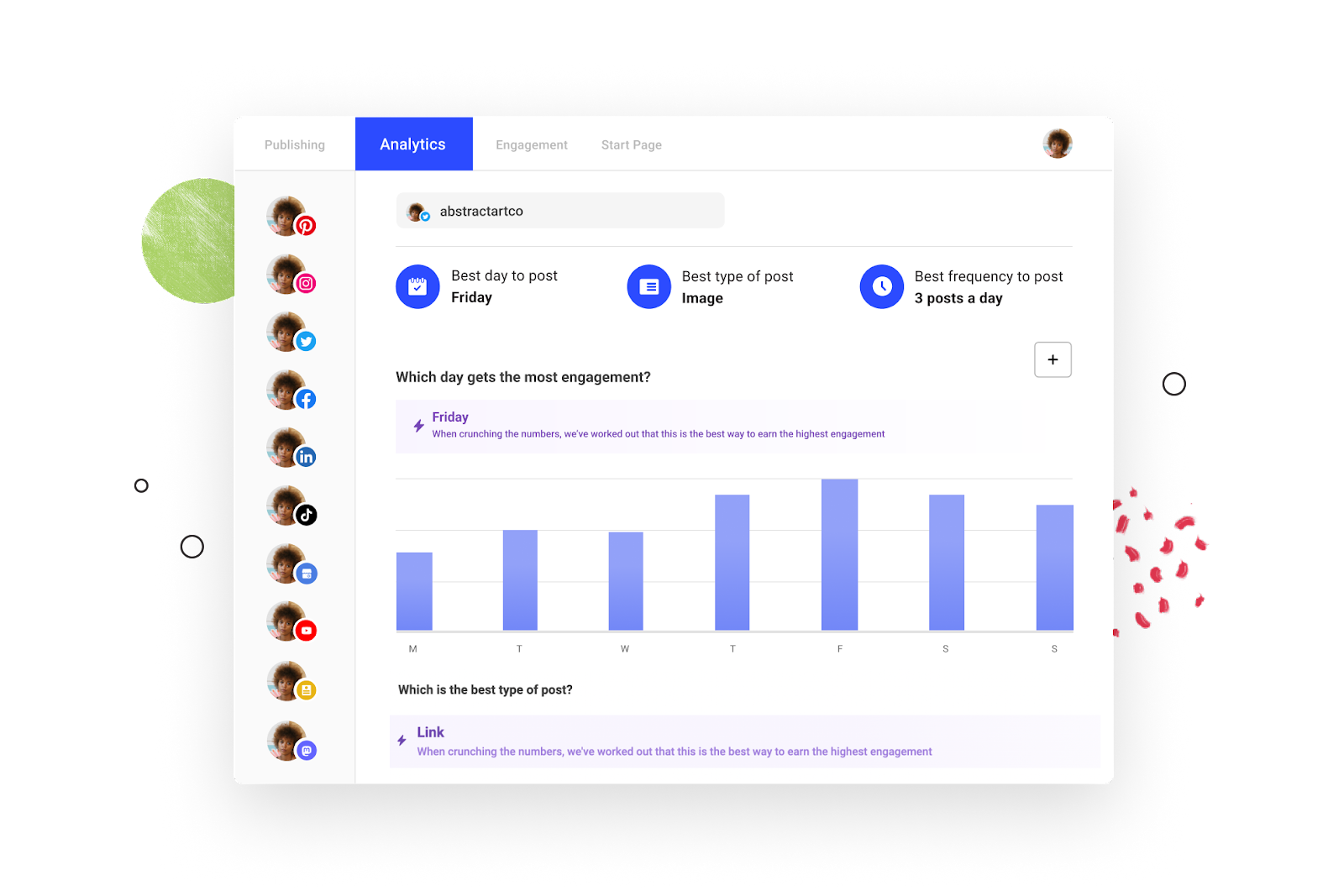
Best for managing social accounts 🏆
Buffer is an all-in-one tool for building an organic social media following. It helps you automate posting, measure user engagement, and track analytics.
Key Features 💻
- Integrates with all the major platforms
- Custom link landing pages for social platforms
- AI Assistant to generate ideas for posts and content
Pricing 💰
- Starting at $0 per month
11. Postscript
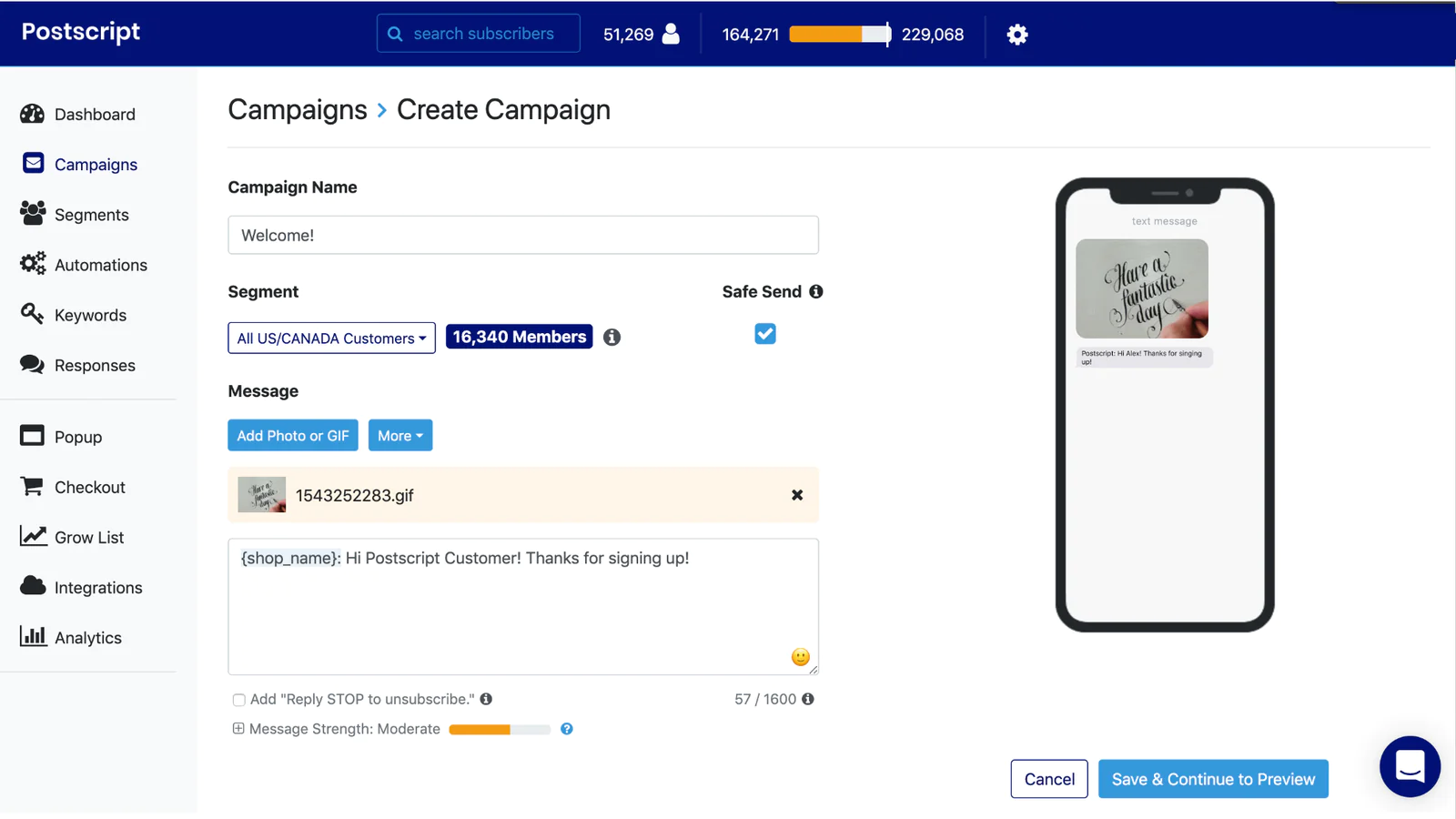
Best for SMS marketing for Shopify brands 🏆
Postscript is the platform for all things SMS for Shopify brands. It offers marketing solutions to grow your list and engagement and sales features to help increase the value of that list. They even offer an in-house service to help your SMS strategy—everything from copywriting to A/B testing.
Key Features 💻
- Marketing to grow engaged list
- Sales to increase value of list
- Cashback solution to increase margins
- Postscript Plus in-house service to help SMS strategy
Pricing 💰
- Starting at $0 monthly fee plus $0.015/SMS and $0.045/MMS and carrier fees
12. Canva

Best for creating graphics 🏆
Canva is the simple cloud-based design tool that helps brands test many ads, quickly, and create graphics for social media. It’s easy to use, convenient, and allows for collaboration among team members.
Key Features 💻
- Templates, fonts, and free assets for faster production
- Social media integrations
- Print-on-demand products for your designs
- Background remover (Pro)
- Premium content library (Pro)
Pricing 💰
- Starting at $0 per month
13. ShipBob
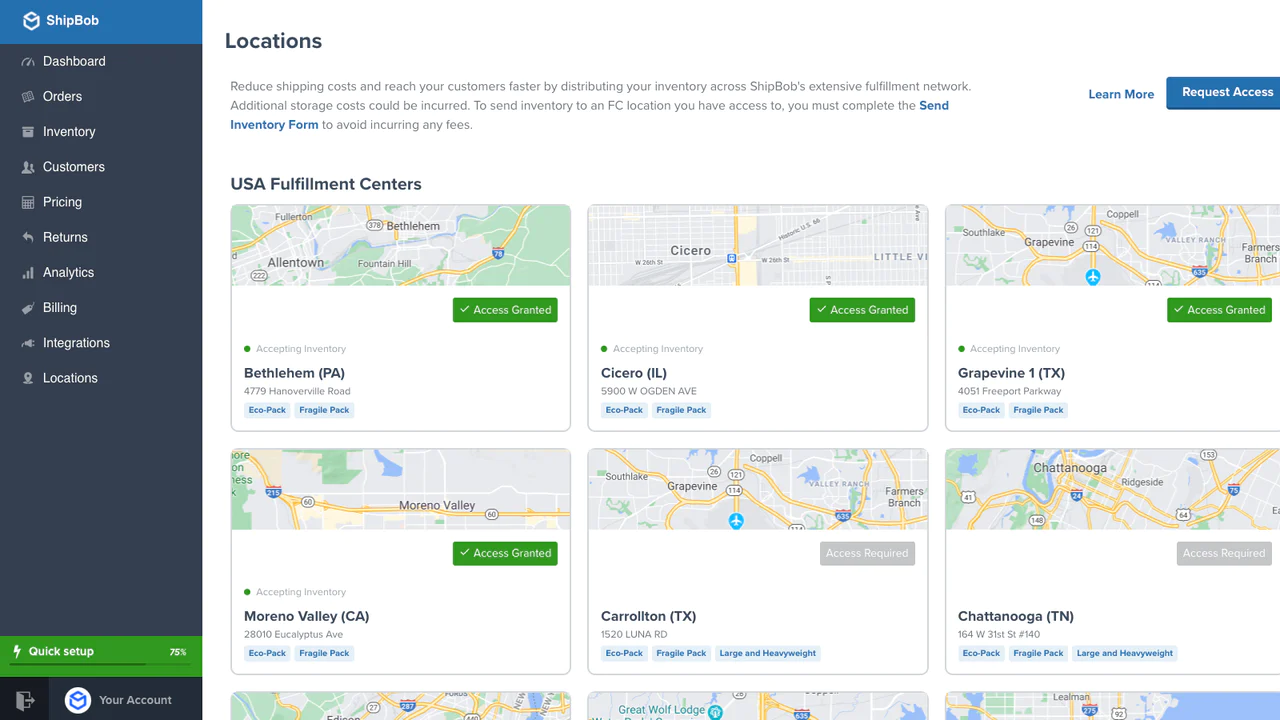
Best for fulfillment and shipping 🏆
ShipBob is a technology platform and network of third-party logistics providers (companies that warehouse and ship your products for you). All you do is connect your store with their software and send products in bulk to one of their centers, then they make sure it gets delivered.
Key Features 💻
- Distributed fulfillment centers for strategic shipping locations
- Integrations with all major commerce platforms
- 2-day express shipping to increase conversion rate
Pricing 💰
- Custom
14. Finaloop
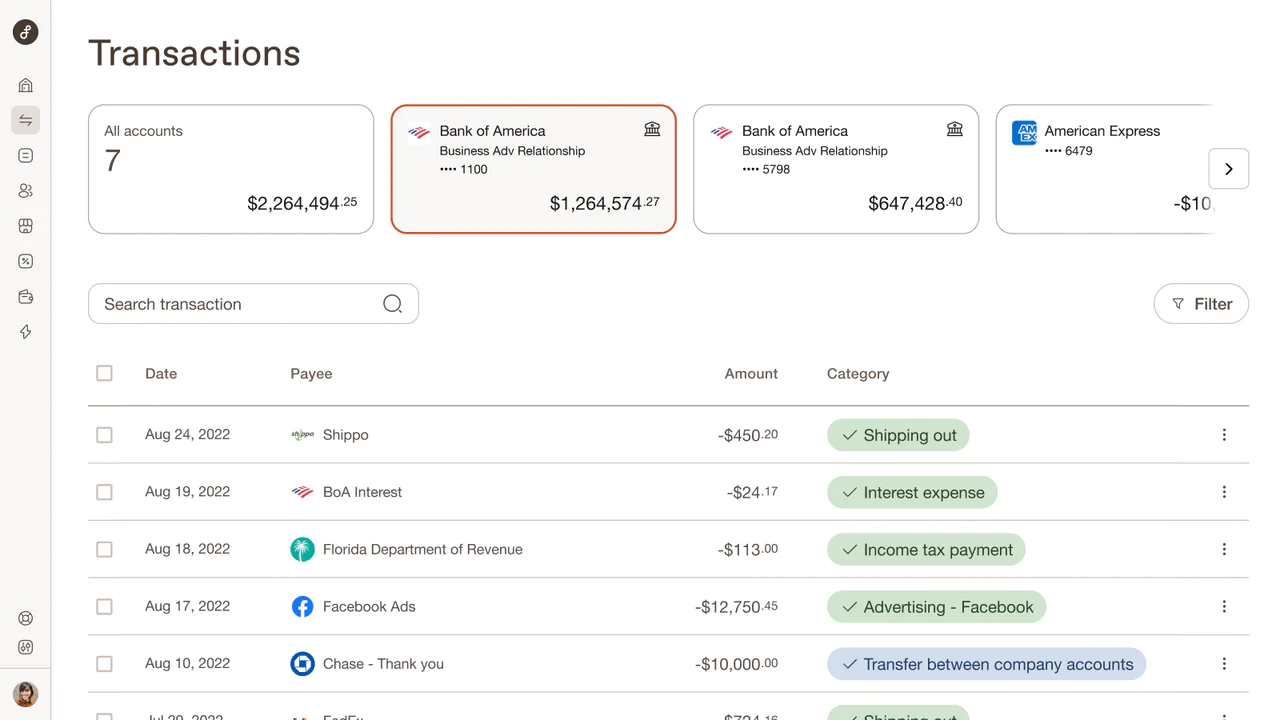
Best for accounting 🏆
Finaloop is an accounting software and bookkeeping service specifically designed for ecommerce brands. Using Quickbooks? Finaloop is made just for your online business—not agencies, restaurants, or any other industry.
Key Features 💻
- Real-time bookkeeping for multiple channels, including wholesale and DTC
- Done-for-you bookkeeping service
- Integrations with most apps, platforms, and banks
Pricing 💰
- Starting at $395 per month
15. Gorgias
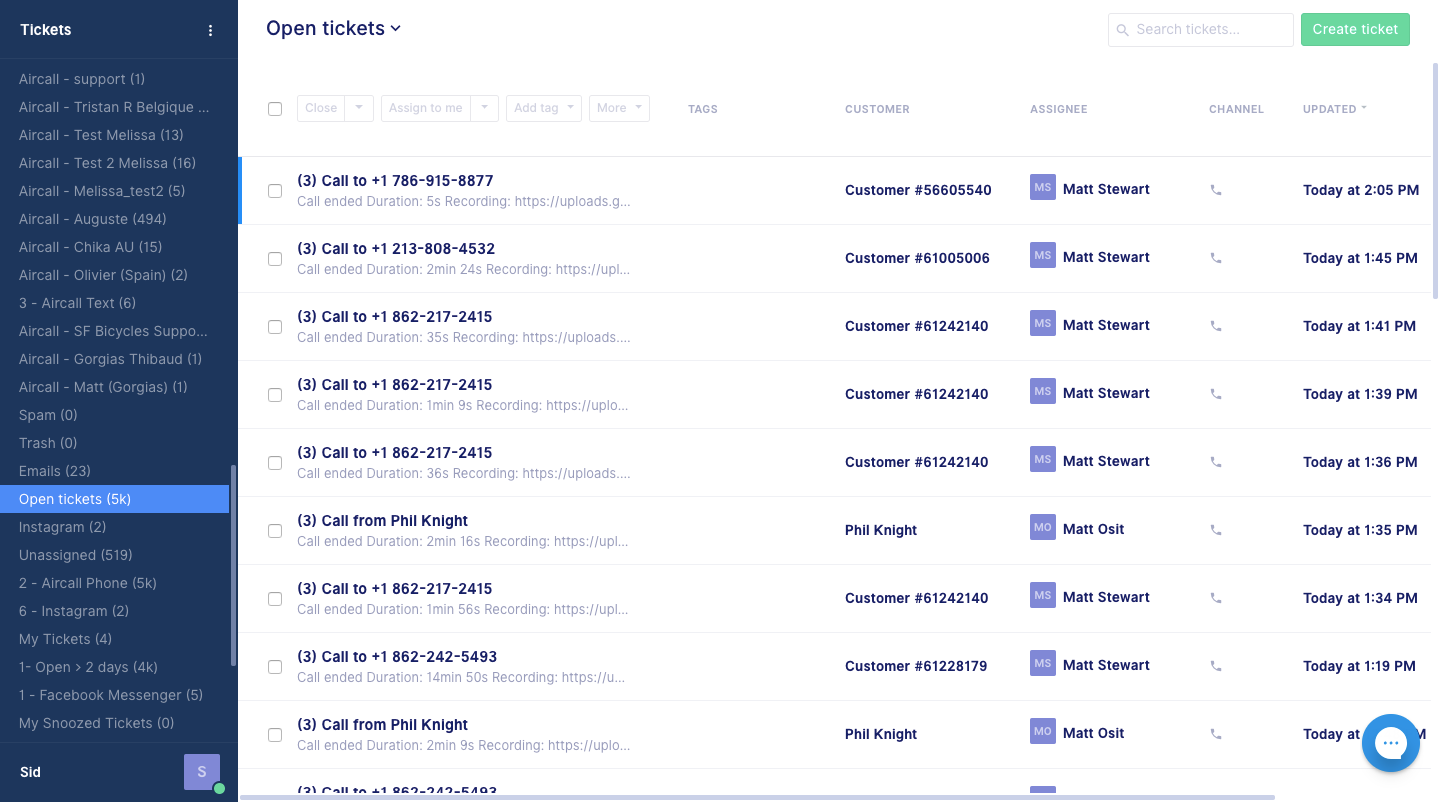
Best for customer service 🏆
Gorgias is an app that allows you to provide support across multiple channels in one centralized place. It helps you delight your customers and empower your customer service teams.
Key Features 💻
- AI support ticket management
- On-site conversion rate optimization toolkit
- Connects with 100+ apps and platforms
- Used by over 14,000 brands
Pricing 💰
- Starts at $10 per month
16. Recharge
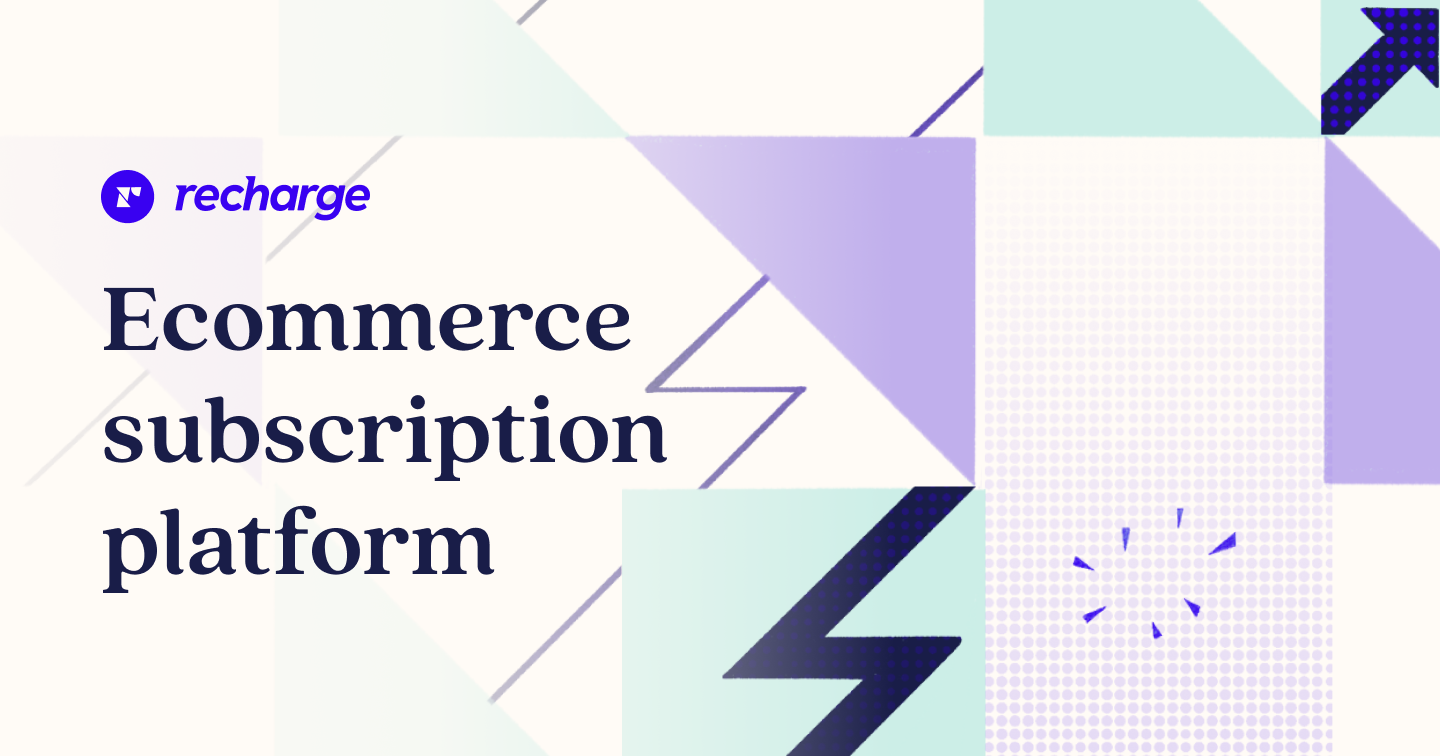
Best for physical-product subscriptions 🏆
Recharge is a platform that helps you sell subscriptions and manage recurring payments. It offers solutions for shoppers to customize their subscription settings as well as bundling options to increase lifetime value and average order value.
Key Features 💻
- A/B testing
- Advanced customizations and development
- Integrations with top ecommerce tools
- Comprehensive analytics
Pricing 💰
- Starting at $99 per month plus 1.25% plus $0.19 per transaction
17. Junip
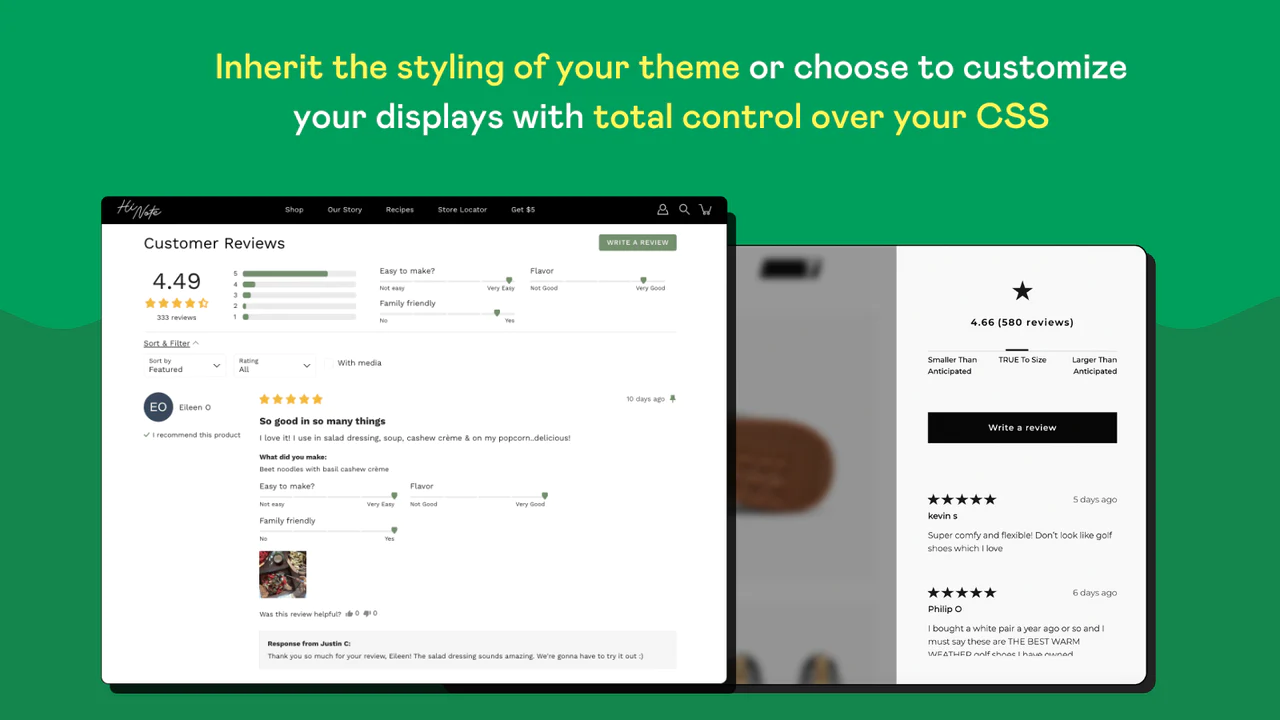
Best for reviews 🏆
Junip is a technology that helps you collect reviews and show them where they help convert customers. You can use the platform to send review requests through multiple channels, and then display those reviews on your website, with control over CSS and a Display API.
Key Features 💻
- Photo and video reviews
- Customizable forms
- Public replies and ability to feature the best reviews
Pricing 💰
- Starting at $0 per month
18. Loop Returns

Best for return management 🏆
Loop is a platform that helps you conduct returns in a manner that saves your business time and money. It helps you optimize your return costs and find creative ways to save margin, so that every return is an opportunity to generate revenue. 40% of all Loop returns result in retained revenue.
Key Features 💻
- Partnered with ShipBob, ShipHero, and Ryder Commerce
- Turn refunds into exchanges
- Shop now and shop later option for customers
Pricing 💰
- Starting at $29 per month plus per-return fee
19. Narvar
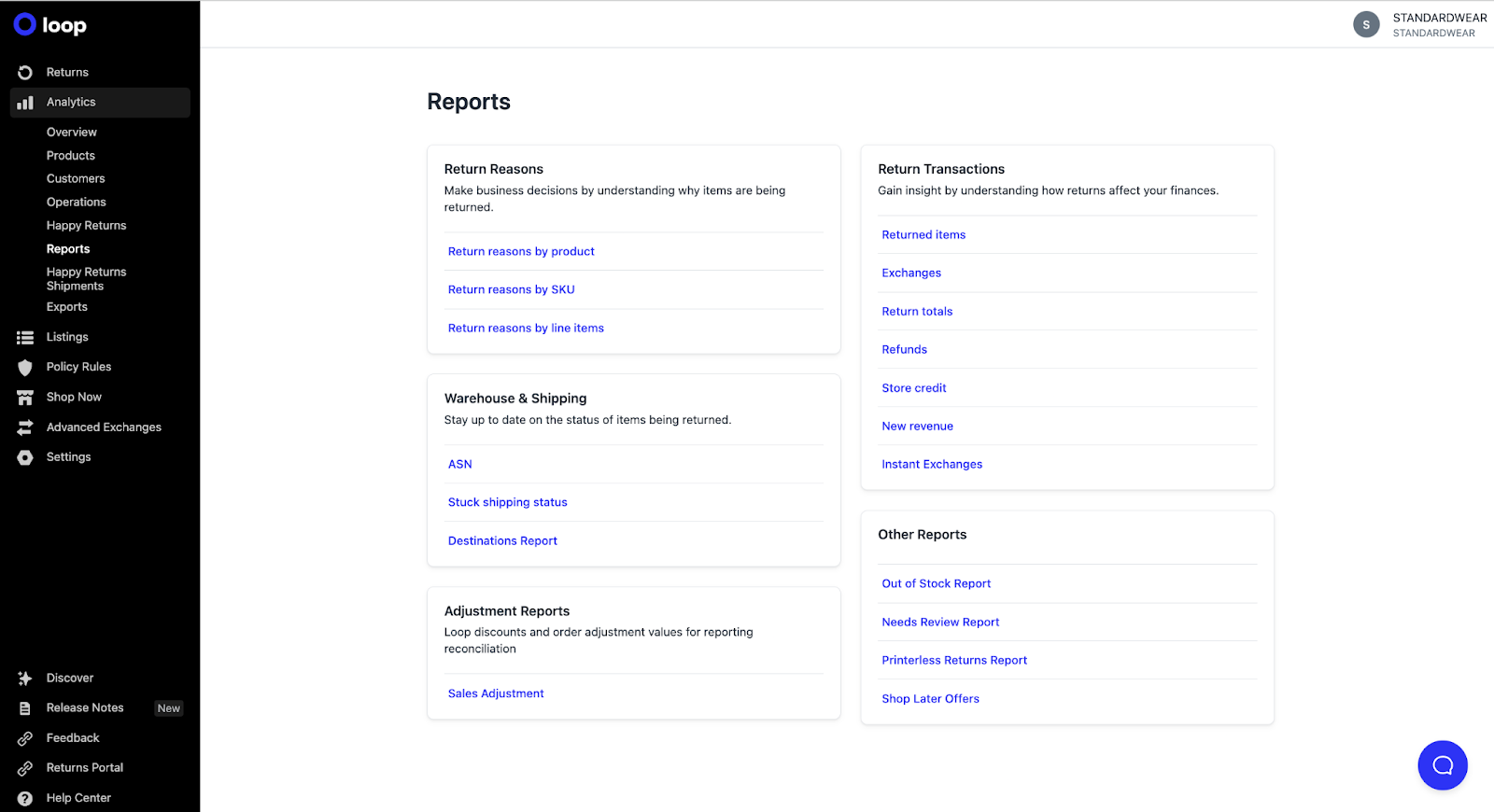
Best for the post-purchase experience 🏆
Narvar is a platform that gives customers information on shipping and tracking information. Once a shopper buys a product, Narvar keeps them up to date on shipping information, notifications, and returns.
Key Features 💻
- Proactive, dynamic messages and emails
- Custom branded messages
- Integrates with over 300+ carriers and 50+ ecommerce platforms
Pricing 💰
- Custom
20. Alibaba
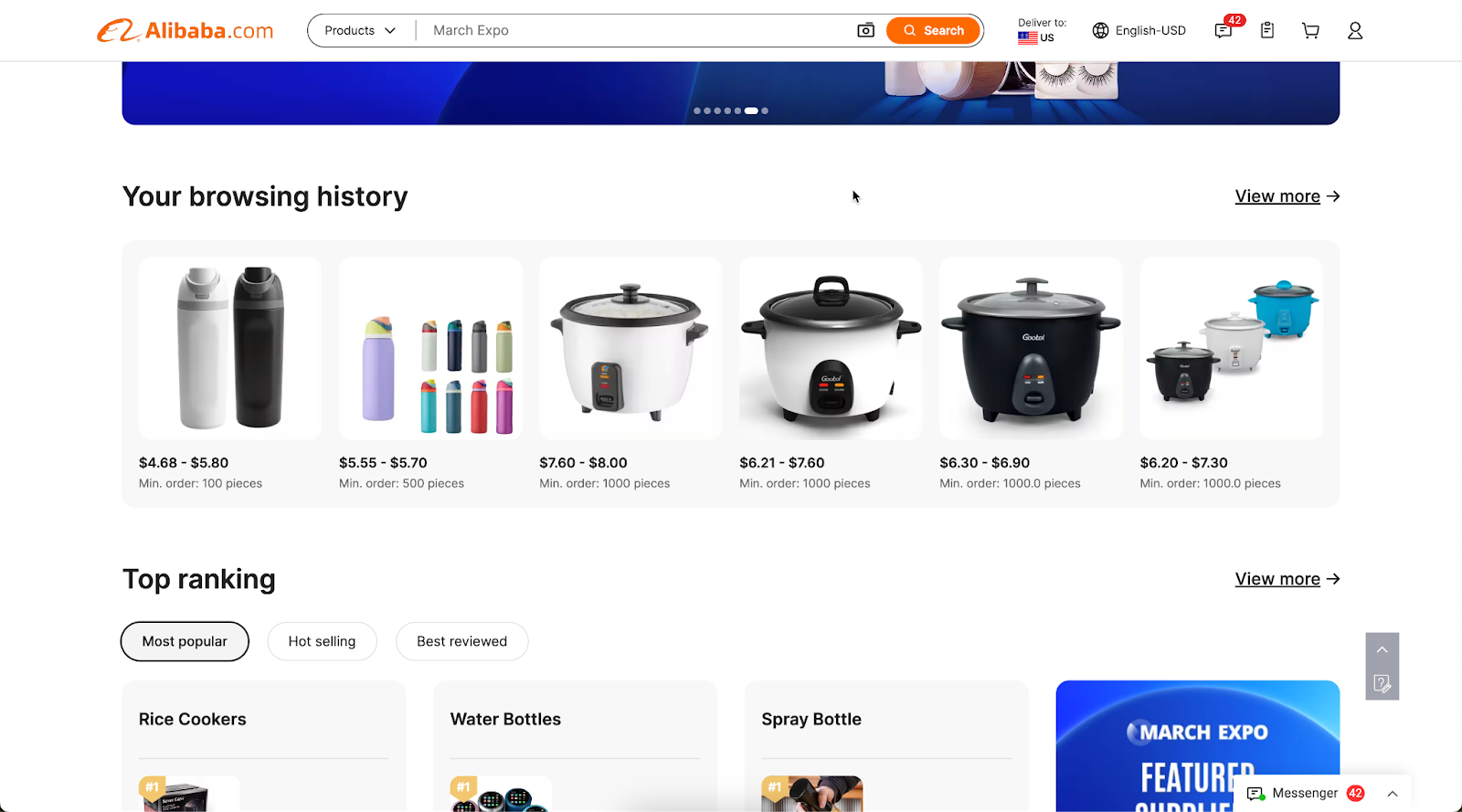
Best for finding suppliers 🏆
Alibaba is a marketplace that connects overseas factories and suppliers with customers. You have the ability to search for just about any product and communicate directly with the people who manufacture it for customization, packaging, and more. Alibaba is like Amazon or Craigslist for business—you can find just about anything.
Key Features 💻
- In-platform messaging
- Takes credit card
- Access to (almost) unlimited suppliers and products
Pricing 💰
- Varies by product
What are the Main Ecommerce Tools That I Need?
With the amount of different technologies available today, it can be confusing to figure out which tools you actually need versus which ones are just nice to have. Here are a few types of software you absolutely need for your online store.
Online Storefront
Of course, if you’re starting an ecommerce brand you need an actual store. Online store platforms help you build out your store, offer individual products, and complete orders. You could do this all by yourself with a developer, but that would be way too expensive and time consuming.
Whop is the leading ecommerce platform and with just 3% transaction fees, you can sell anything digital online, profitably. But there’s also tools like Shopify, Wix, BigCommerce, WooCommerce, and more. Getting your storefront up and running is the first step in launching an ecommerce business.
Creative
Primarily for ads, but also for social posts, you want something to easily create a ton of graphics. There’s free tools like Canva, but also more advanced software like Photoshop or Illustrator, that help you and your team quickly produce fresh content.
Due to so-called “creative fatigue,” when an ad isn’t performing well due to the stale creative, ecommerce brands should always be testing different images, colors, headlines, copy, fonts, and more in ad campaigns.
Landing Pages
Landing pages offer you, the brand owner, another way to communicate why customers should buy from your brand. They’re different from homepages and product-description pages because they have special angles and sales copy. Think of them like a billboard for ecommerce—you get one main message across.
Replo makes it easy to create landing pages because of the drag-and-drop features and integration with Shopify. Landing pages can boost your conversion rate and even increase your average order value.
Email and SMS Marketing
Once you’re driving traffic (likely from Facebook ads) and generating sales, you want to put a mechanism to close repeat business. Email and SMS help you retain customers, get them to buy more, and tell them about new products and promotions.
Email campaigns can be powerful ways to visually display your new products and sales, and SMS is a convenient way to be in the place that customers are communicating with others most frequently: their text messages. Emails and most texts give you the ability to link directly to your site so customers can buy from there.
Tools like Mailmodo (email), Sendlane (email), and Postscript (SMS), among others, are great for email and SMS marketing.
Customer Service and Customer Experience
While it’s probably the least sexy part of running an ecommerce store, customer service (replying to customer inquiries) and customer experience (delighting customers with good communication, fast shipping, and proper education) are two of the most important parts of retaining happy customers. Helpdesk software like Gorgias and tracking software like Narvar are great tools to help in this area.
In an ideal world, you could have one centralized solution that covers all of the necessary tools to run your online business. Whop is the answer.
With Whop, you get:
- High-converting storefronts
- Built-in distribution via the thriving marketplace of buyers
- Integrated email marketing
- Easy-to-comprehend dashboards to make smart decisions
- Painless fulfillment (Whop takes care of sending out the downloads and adding or removing subscribers from your groups)
- Subscription management via tired memberships, all within the platform
- Easily-viewable reviews for added social proof to boost conversions
- 24/7/365 support
Selling on Whop makes earning money online as easy as possible.
Scale Your Ecommerce Business with Powerful Software
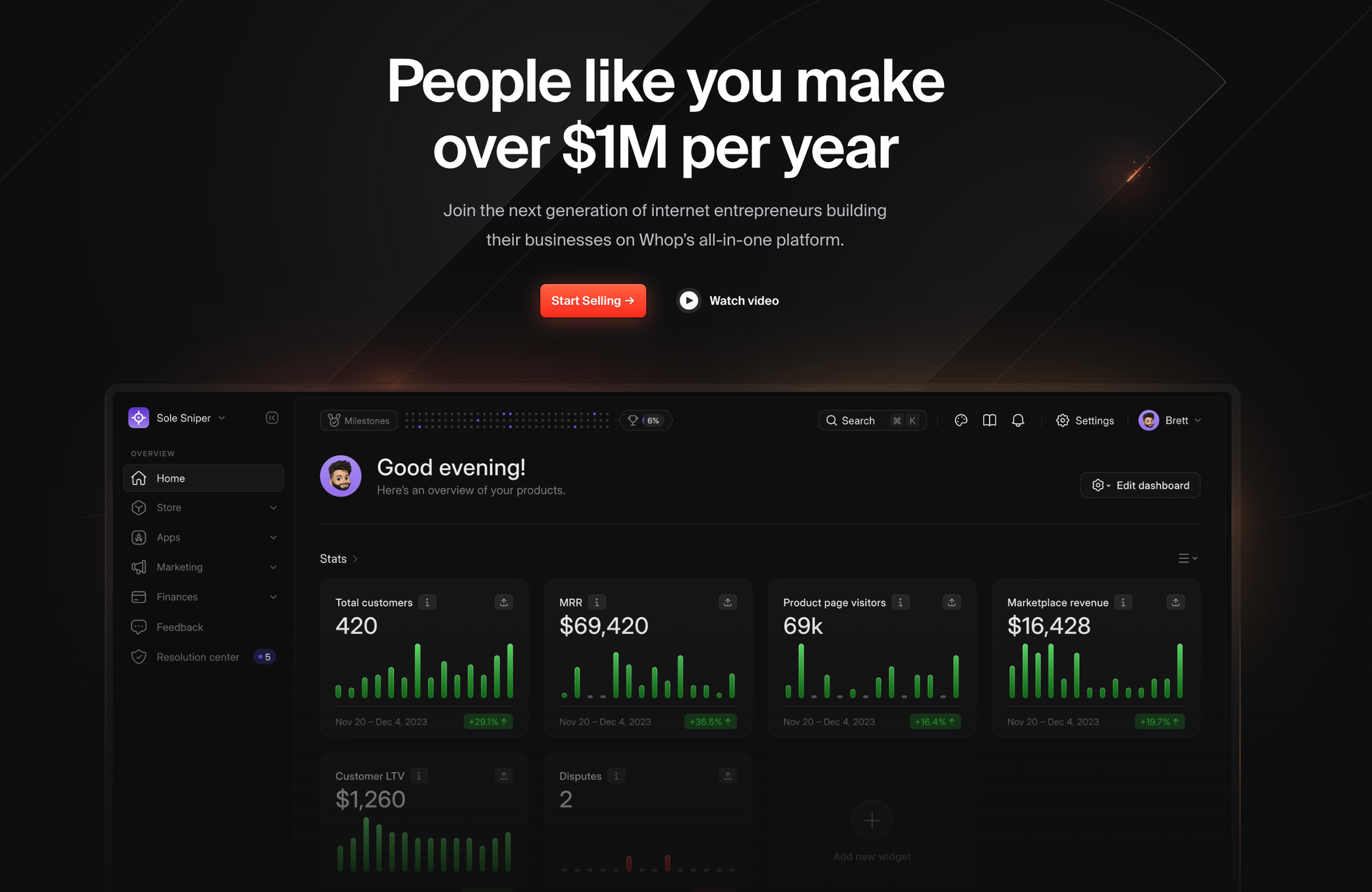
Starting and growing an ecommerce business is hard, but exciting! There’s nothing quite like creating a quality product that customers love, marketing it on a platform like Facebook and Google, and then delivering it to your customers doorstep.
In years past, if you wanted to sell products online you’d either have to make the software yourself, find a developer, or pay extremely high software fees. (Not to mention sourcing and handling the physical goods and spending money on ads.) These days, it’s become much, much easier because platforms like Whop have democratized the ability to sell things and have brought the customers to you.
As the demand for digital products grows each year, the opportunity to create a lasting business is bigger than ever. With Whop, you have expert support for every step of your journey. You can create a storefront easily, get access to people who are looking for your products, and profit more with a low 3% transaction fee.
